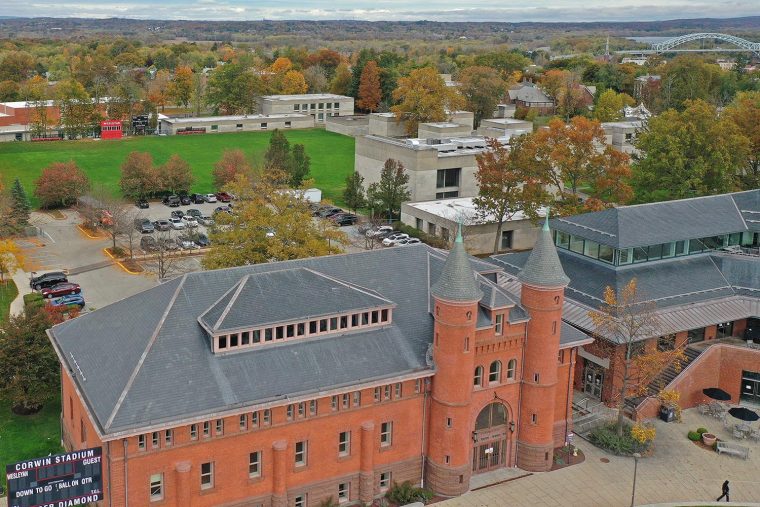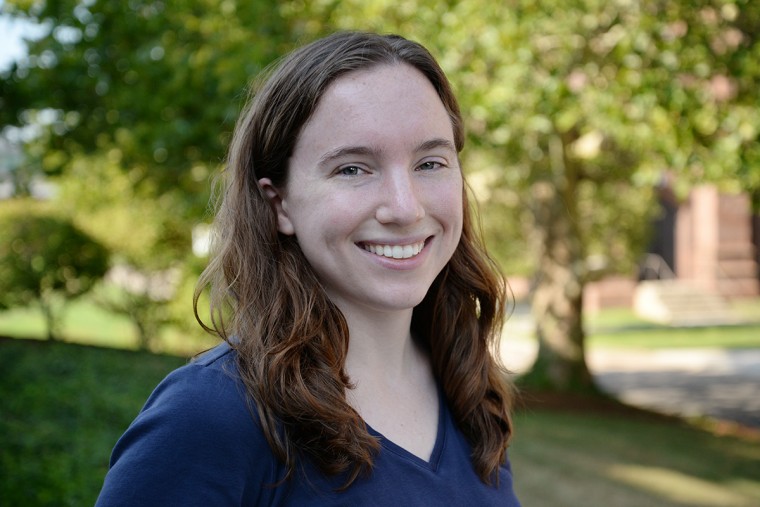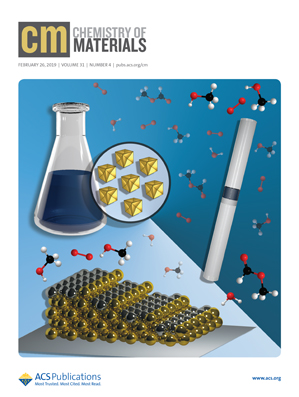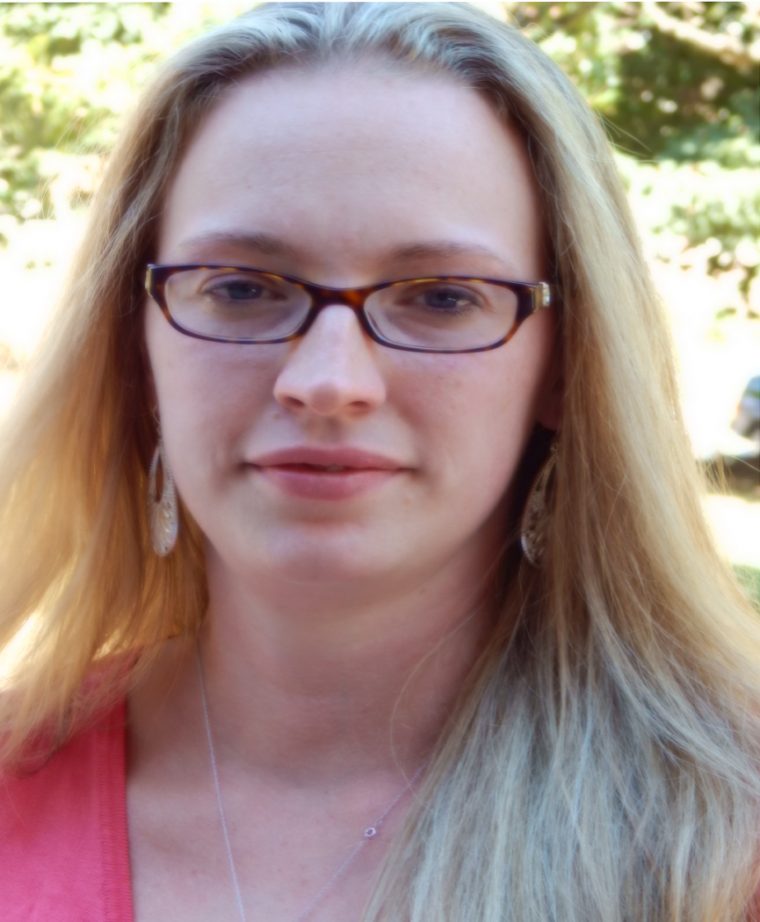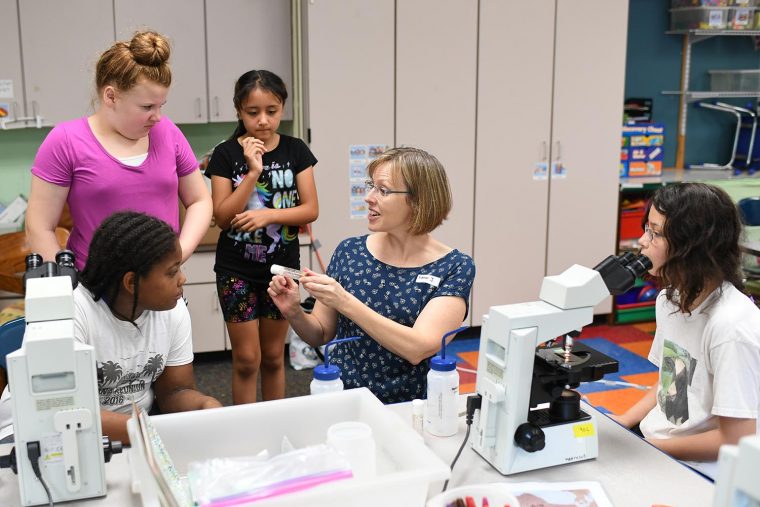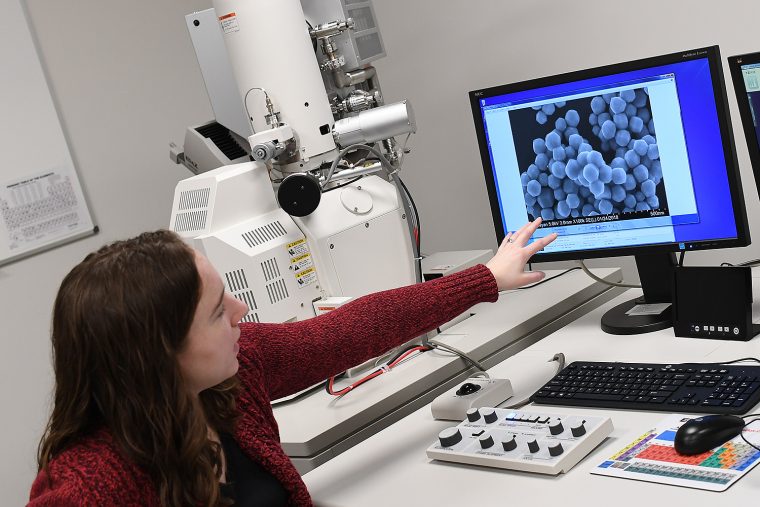The following faculty were conferred tenure, effective July 1, 2021 by the Board of Trustees at its most recent meeting: David Kuenzel, associate professor of economics; Michelle Personick, associate professor of chemistry; and Olga Sendra Ferrer, associate professor of Spanish. In addition, one faculty member was promoted, effective July 1, 2020: Valerie Nazzaro, associate professor of the practice in quantitative analysis. Brief descriptions of their areas of research and teaching appear below: David Kuenzel’s scholarship focuses on international trade and economic growth. In his research, he analyzes nations’ trade policies, trade flows, and economic growth in connection with the policies…
Michelle Personick, assistant professor of chemistry, has been selected by the Leadership Council of the Interactive Online Network of Inorganic Chemists (IONiC) to participate in a National Science Foundation–funded study to develop, test, and refine a flexible, foundation-level inorganic chemistry course. As a Virtual Inorganic Pedagogical Electronic Resource (VIPEr) Fellow, Personick joins 17 other inorganic chemists from across the country in a community of practice dedicated to improving student learning. The 2018 VIPEr Fellows are the first faculty who have been selected for this groundbreaking project. The study, titled “Improving Inorganic Chemistry Education,” is being conducted with support from the National…
An invited perspective article written by Michelle Personick, assistant professor of chemistry, and Danny Robertson ’18 is featured on the cover of the Feb. 26, 2019, issue 4 of Chemistry of Materials. Personick was invited to contribute the perspective article as part of Chemistry of Materials’ “Up-and-Coming” series of Perspectives. The series provides a place for emerging, early career scientists to discuss and provide insights into new areas of materials science, and to showcase their research accomplishments. The perspective, titled "Growing Nanoscale Model Surfaces to Enable Correlation of Catalytic Behavior Across Dissimilar Reaction Environments," highlights recent advances and potential future directions in the…
Melissa King, a PhD student in chemistry, and Michelle Personick, assistant professor of chemistry, are the coauthors of a study titled "Iodide-induced differential control of metal ion reduction rates: synthesis of terraced palladium–copper nanoparticles with dilute bimetallic surfaces," published in Journal of Materials Chemistry A, August 2018. In this paper, King and Personick report the use of low concentrations of iodide ions as a means of differentially controlling the reduction rates of a noble metal (palladium) and a non-noble metal (copper). The iodide in this system increases the rate of reduction of palladium ions while concurrently slowing the rate of…
Four girls squint one eye and with the other eye gaze intently into a microscope. One says she sees caterpillars or string or pink spaghetti. Another says she sees small frogs. "You're actually looking at tissue that's been smashed," says Ruth Johnson, associate professor of biology. "Do you see those dark spots? Those are chromosomes." Johnson, a developmental biologist who studies how tissues and organs are shaped during development, is one of five Wesleyan faculty who taught workshops during the fifth annual Girls in Science Summer Camp, Aug. 6–10. The camp is open to all girls in grades 4, 5, and…
Michelle Personick, assistant professor of chemistry, is the recipient of a three-year, $339,000 Young Investigator Program grant funded by the U.S. Army Research Office. Personick will use the funds to support her nanoparticle research, which ultimately may protect military soldiers from hazardous chemicals and materials. The Army’s Young Investigator Program is designed to identify and support talented scientists and engineers who show exceptional promise for doing creative research, in order to encourage their teaching and research careers. The program is open to U.S. citizens, Nationals, and resident aliens holding tenure-track positions at U.S. universities and colleges, who have held their graduate…
By using a newly acquired electron microscope, the E&ES 368 Meteorites and Cosmochemistry class was able to classify a meteorite discovered in Morocco. "We were able to determine that it was an H4 ordinary chondrite, and the chemical information being collected today will be used to document these findings and submit this meteorite to the Meteorite Nomenclature Committee of the Meteoritical Society for official classification," said class instructor Jim Greenwood, assistant professor of earth and environmental sciences. Wesleyan acquired the field-emission scanning electron microscope (FE-SEM) with support from a $202,300 National Science Foundation grant awarded in August 2017. Greenwood and Michelle Personick,…
In this Q&A, we speak with Michelle Personick, assistant professor of chemistry, assistant professor of integrative sciences. Personick, who joined the faculty at Wesleyan in 2015, is interested in developing tailored metal nanomaterials that improve the clean production of energy and enable the efficient use of energy resources. Her work has recently been published in the journals Particle and Particle Systems Characterization and American Chemical Society Catalysis. Q: Professor Personick, how would you describe your main research interests? A: The main research areas in my group are controlling the shape and composition of noble metal nanocrystals, and exploring the use of these nanoparticles…
Michelle Personick, assistant professor of chemistry, and her graduate student Melissa King, are co-authors of a paper titled “Bimetallic Nanoparticles with Exotic Facet Structures via Iodide-Assisted Reduction of Palladium,” published in the journal Particle and Particle Systems Characterization, Vol. 34, Issue 5, in May 2017. The research was featured on the inside front cover of the issue. In this study, Personick and King explain how gold–palladium tetradecapods (14-pointed nanoparticles) with an unusual combination of both well-defined concave and convex facets can be synthesized by introducing dilute concentrations of iodide during nanoparticle growth. Iodide directs the formation of the tetradecapods by increasing…
Michelle Personick, assistant professor of chemistry, received a two-year doctoral new investigator grant from the American Chemical Society Petroleum Research Fund (ACS PRF) to synthesize and test new metal nanomaterials designed to make industrial chemical processes more energy efficient. Her study, titled “Tailored Bimetallic Catalysts with Highly Stepped Facets for Selective and Energy-Efficient Epoxidation and Hydrogenation Reactions," will be supported for two years with a $110,000 award. "Global energy consumption is steadily increasing, and the chemical industry is the second largest consumer of delivered energy," Personick said. "The chemical industry is unique in that it uses energy resources, such as petroleum…
Michelle Personick, assistant professor of chemistry, received the Victor K. LaMer Award from the American Chemical Society Division of Colloid and Surface Chemistry. The honor, which comes with a $3,000 monetary award, was presented at the ACS Colloid and Surface Science Symposium June 5-8 at Harvard University, where she presented a plenary talk. The Victor K. LaMer Award is presented to the author of an outstanding PhD thesis in colloid or surface chemistry. LaMer was the editor of the Journal of Colloid Science (now the Journal of Colloid and Interface Science) from its founding in 1946 to 1965. In addition to his seminal…
In this News @ Wesleyan story, we speak with Michelle Personick, a new member of Wesleyan's Chemistry Department. Q: Welcome! Please fill us in on your life before Wesleyan. A: I’ve lived in the Northeast for most of my life. I grew up in New Jersey and then moved a bit further north to go to college in Vermont. I did my graduate work at Northwestern University in Evanston, IL, which is just outside of Chicago. It was fun to be a short train ride away from Chicago and to be able to experience a new city for a few years.…


